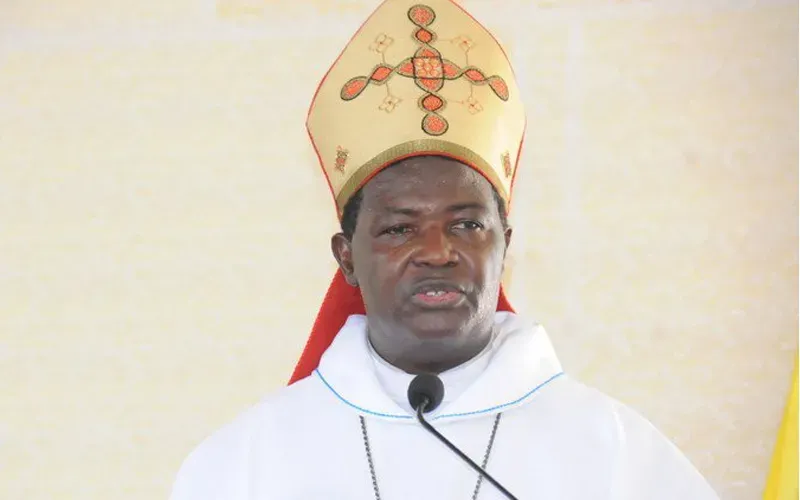“It is intolerable to insult and lay hands on a religious person in full exercise of his responsibility, even if he is a foreigner, which is not the case here,” the Archbishop says in his message.
He notes that the act committed by the soldiers “is a form of intolerance that should have no place in a plural society like ours.”
“Those who behave in this way are putting themselves at war with God for God does not despise any prayer made with a good heart and an upright conscience, whatever the religious denomination of the believer,” Archbishop Djitangar says.
In his statement, the Chadian Archbishop goes on to recount the circumstances surrounding the attack saying, “On the morning of November 3, 2021, three Toyota vehicles with military personnel on board forced their way into the courtyard of the St Isidore Bakanja Parish in Walia-Gorée.”
He continues, “The occupants of the vehicles settled down in the Parish without any respect for the people and the place where they were. This in the absence of the Parish Priest.”
“When the Parish Priest arrived, he introduced himself to the soldiers and asked them to state the reason for their mission. The three soldiers insulted the Priest and urinated inside the Parish. They then molested the Priest who was trying to film the scene and seized his mobile phone,” the Archbishop recounts.
“The phone was only returned after the intervention of the Vicar General, Fr. Samuel Mbairabé Tibingar, and the episcopal vicar in charge of pastoral work, Fr. Romain Guelbé,” the Archbishop further recounts, and adds, “The three priests called on the faithful to remain calm and promised to report faithfully to the Archbishop what they had seen and heard.”
After listening to the report of the two Vicars, Archbishop Djitangar says he “personally went to St. Isidore Bakanja Parish the next day, November 4, to speak with the Parish Priest and gather additional information.”
In his November 8 statement, the Chadian Archbishop recalls similar incidents that seem to target the Catholic Church and her members.
“On February 6, 2018, during the crackdown on the protests, tear gas was deliberately fired into the courtyard of St. Mathias Mulumba Parish in Pari Congo, injuring worshippers as they left morning Mass. I wrote a letter of protest to the Minister of Security who did not bother to reply,” Archbishop Djitangar recalls.








